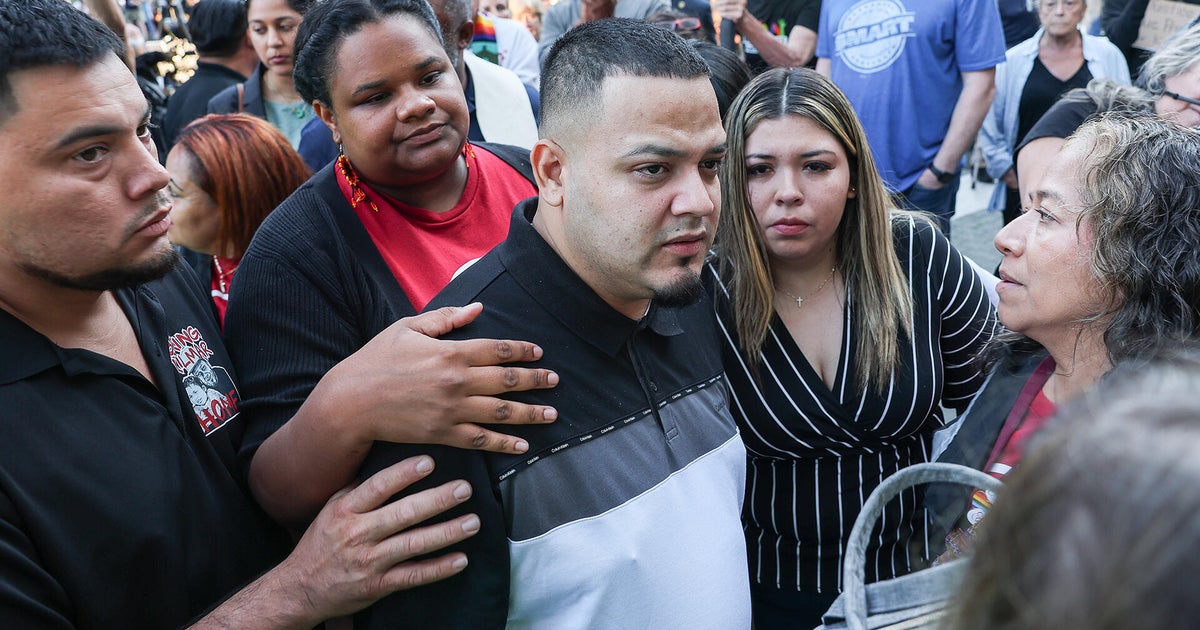A judge ordered a new trial for three former police officers who were convicted on federal charges in the fatal beating of Tyre Nichols, a young Black man whose death prompted intense scrutiny of Memphis police, nationwide protests and renewed calls for police reform.
The decision came after defense lawyers argued that another judge who had presided over the officers’ trial had been biased in his belief that at least one of the men was in a gang.
Sheryl H Lipman, a US district judge, issued the order for a new trial for Tadarrius Bean, Demetrius Haley and Justin Smith, who were found guilty in October 2024 of obstruction of justice through witness tampering in the beating death of Nichols after he fled a traffic stop.
Two other officers, Emmitt Martin and Desmond Mills Jr, also were charged, but they pleaded guilty before the federal trial.
Lipman took over the case in June after another US district judge who had presided over the case and the trial, Mark S Norris, recused himself days before the sentencings for the five officers.
In a statement shared by his judicial office Thursday, Norris said: “Because of the code of judicial conduct, I cannot make a statement on this matter.”
In her order, Lipman cited a notice filed by the US attorney’s office saying Norris had expressed a theory that at least one of the officers charged in the Nichols case was in a gang.
The notice discussed an incident in which Norris’s law clerk had been shot in the chest during a car theft days after the trial ended. The clerk had been staying at the home of another law clerk who had previously worked for Norris on the Nichols case, it said.
The notice also said that police investigators believed a group of juveniles committed the shooting; that Norris wanted those responsible to be held accountable; and that he “evidenced reasonable frustration with the police investigation”.
Norris met with the US attorney’s office and an FBI agent, who explained why no federal charges would be brought in the clerk’s shooting.
During the 30 May meeting, Norris indicated that he believed at least one of the former officers was in a gang and that the gang had been responsible for the shooting, the notice said. It also said the US attorney stated that Norris told those present that the clerk “had been seen by one or more of the Defendants during the trial”.
An assistant US attorney who attended the meeting also said she remembered that, shortly after the law clerk was shot, Norris told her he could not meet with any member of the police department to give a statement because the department was “infiltrated to the top with gang members”, the notice said.
Bean, Haley and Smith filed motions seeking a new trial, arguing that Norris was biased and violated their rights to due process by presiding over the case.
Smith’s lawyer said there was no “suggestion or one hint in the federal discovery process or the federal trial that any defendant or any member of the Memphis Police Department was in any way affiliated with an illegal street gang either through membership or relationship”.
Haley’s lawyer wrote that “Judge Norris made the gang statements on at least two occasions, demonstrating that it is a firmly held belief, not an off-hand remark”.
Lipman found that while a review showed Norris’s decisions throughout the trial had been “sound, fair, and grounded firmly in the law”, a new trial was necessary “because the risk of bias here is too high to be constitutionally tolerable”.
A date for the retrial has not been set. Lipman ordered lawyers to submit positions on which charges they believe need to be tried.
Smith’s attorney, Martin Zummach, said Lipman “did the right thing”. Bean’s lawyer declined to comment, and Haley’s attorney did not immediately respond to a request. Memphis police also declined to comment.
Bean, Haley and Smith were found guilty of trying to cover up the beating by failing to say that they or their colleagues had punched and kicked Nichols, and broke police department rules when they did not include complete and accurate statements about what type of force they used.
Bean and Smith were acquitted of more serious civil rights charges.
Haley was found guilty of violating Nichols’s civil rights by causing bodily injury and showing deliberate indifference to medical needs, as well as conspiracy to tamper with witnesses.
Bean, Haley and Smith were acquitted in May of all state charges, including second-degree murder.
Martin and Mills pleaded guilty in federal court last year to violating Nichols’s civil rights by causing death and conspiracy to witness tamper. They did not stand trial in federal court with their former colleagues.
Martin and Mills also avoided a state court trial after reaching agreements to plead guilty. Both testified in the federal trial, and Mills took the stand in the state trial.
The officers were part of a crime-suppression team called the Scorpion unit that was disbanded weeks after Nichols died. The team targeted illegal drugs, guns and violent offenders, and sometimes used force against unarmed people.
On 7 January 2023, officers yanked Nichols from his car and then pepper-sprayed and hit the 29-year-old Black man with a Taser. Nichols fled, and when the five officers, all of whom also are Black, caught up with him, they punched, kicked and hit him with a police baton. Nichols called out for his mother during the beating, which took place steps from his home. Video of the beating captured by a police pole camera also showed the officers milling about, talking and laughing as Nichols struggled with his injuries.
He died three days later.
Source link


